Student Projects
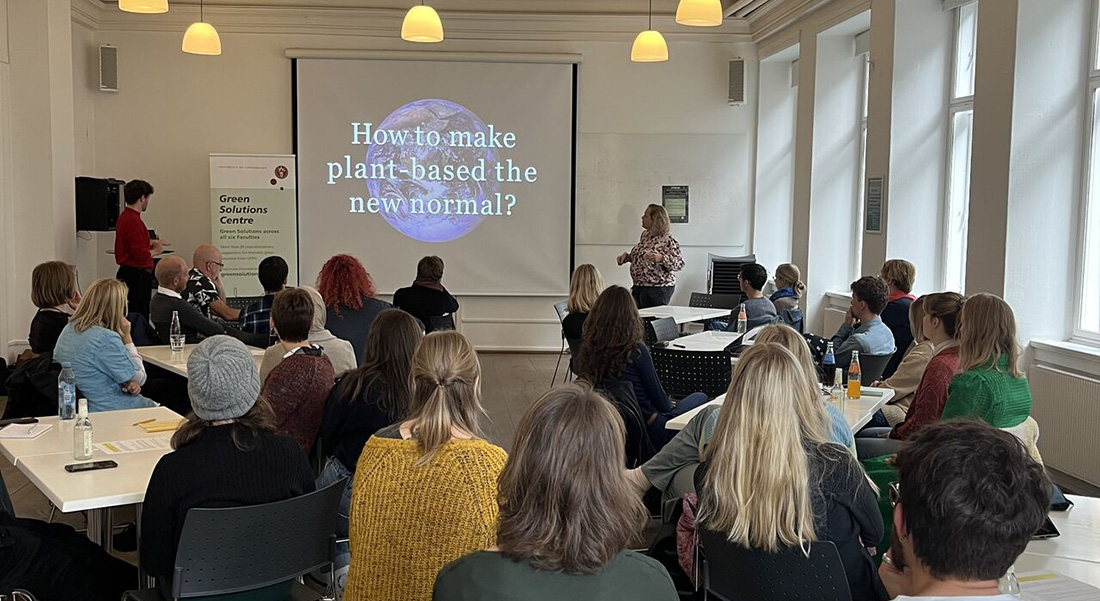
Funding for cross-disciplinary student projects
UCPH Green Solutions Centre Living Lab “Our Plant-based future” offers funding for cross-disciplinary student projects and welcomes all ECTS projects and reports relevant for the transition to a more plant-based food system. Funding can be used for materials, analysis, rental of equipment, consumer-oriented tasks etc., but not for salary and travel.
Student projects can e.g., be based on a collaboration with one or more external partner(s), the student's own ideas or questions under the following Living Lab themes:
Find the requirements for student funding here.
Find the application application form here.
Student grants
Read more about our funded student projects here:

Student: Jemma Litzke, MSc in Human Nutrition
Main supervisor: Iben Lykke Petersen
Project period: 4th of September to 12th of November 2023
External partner: FÆRM
Research article: Enhancing the nutritional profile and functional properties of fava bean milk (for plant based cheese production)
Description: The project is a collaboration with FÆRM, a start-up focused on designing and implementing new technologies to produce plant-based cheeses.
FÆRM’s is looking into formulating a high-quality fava bean milk substitute to meet the demand for soy-free plant-based cheese production. However, they have discovered some challenges, likely caused by various antinutrients, and this forms the basis of my project.
Tannins cause a strong purple colour in the drink when using their preferred soaking method (for a high protein yield). My work is designed to confirm whether this hypothesis is accurate and, importantly, how to reduce the amount of tannin in the milk.
I will also investigate whether there is a correlation between vicin/convicin content and the component (perhaps the tannins) responsible for colour. Other antinutritional components such as glucosinolates, phytates, alkaloids, lectins, trypsin inhibitors and protease inhibitors are also of potential interest, with the possibility of genetically deselecting them if the reduction of specific ones is beneficial.
Different processing methods (including pre-treatments and blending techniques) will be applied to improve the milk made from commercial beans. I will be doing initial experiments to see if easy changes in the processing might be able to improve colour, emulsion stability and taste. Importantly, I will be analysing the effect of those processing methods on the nutritional value of the fava bean milk.
As such, my research project delves into aspects of food engineering, food chemistry and food production by investigating how various processing methods affect the food product and its functionality. Moreover, I will be analysing the implications on the nutrition values. Thus, my project associates the discipline of food science with human nutrition and public health.
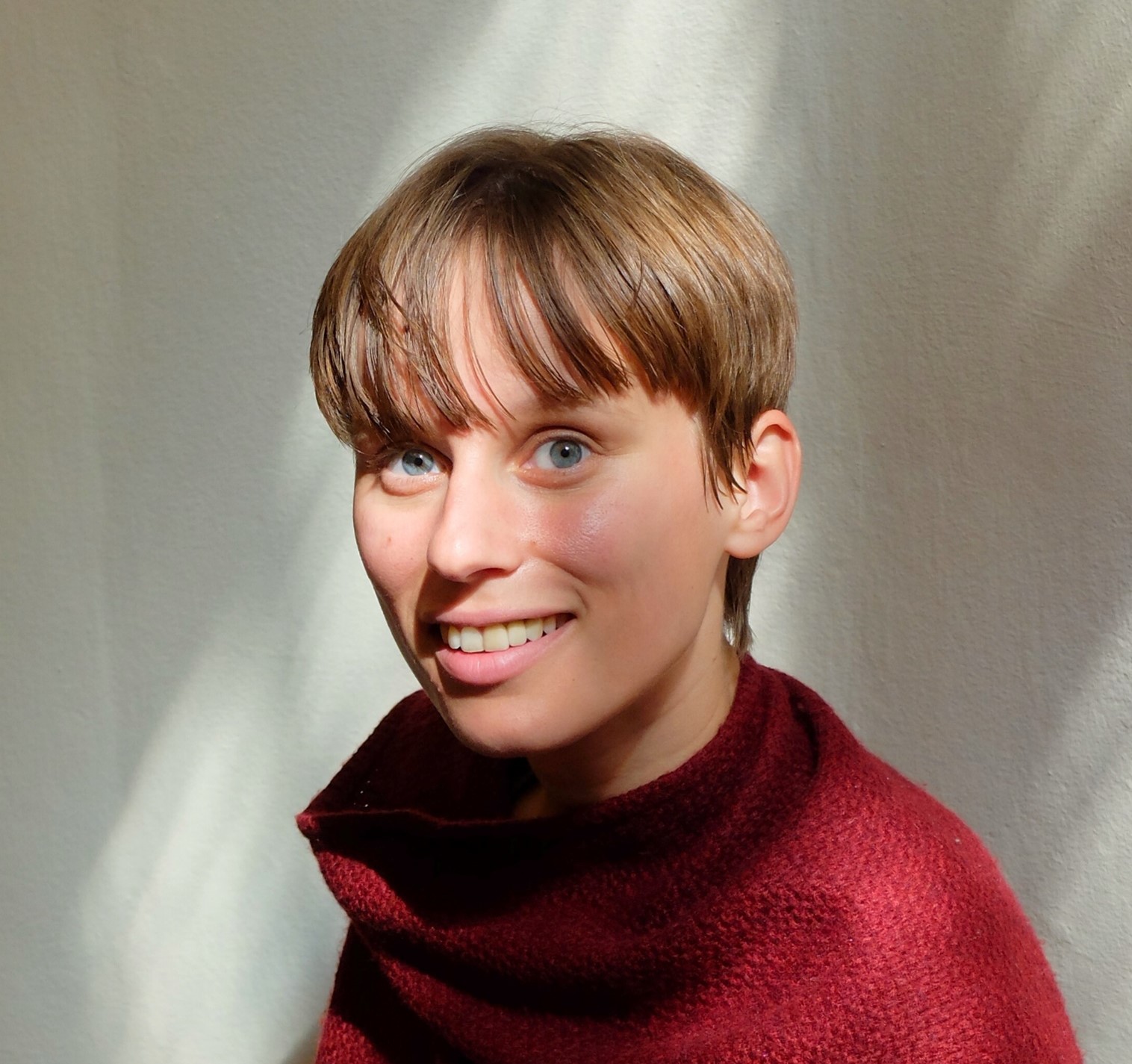
Student: Pernille Lykke Jørgensen, MSc student in Environmental and Natural Resource Economics at UCPH
Supervisor: Sinne Smed, Associate Professor at the Department of Food and Resource Economics at UCPH
Research article: Vegetarian campus canteens – a welcome change or
too much of a green thing?
Project period: August 20th, 2023, to January 31st, 2024. 30 ECTS master thesis.
Survey development, interviews, focus groups and the first round of the survey take place in May and June 2023.
External partner: Compass Group.
Project description:
On the campuses of Frederiksberg and Taastrup of the University of Copenhagen, the transition to a more plant-based food system is taken seriously: Two of the three canteens become entirely vegetarian and highly vegan-friendly as of September 2023. This goes beyond the recommendations of the Danish Climate Council, which says that public kitchens ought to serve food with a reduced content of animal source foods.
It is therefore relevant to investigate if the change is welcome or “too much of a green thing” for the students and staff.
This project combines data shared by Compass Group, which currently runs the canteens, with a repeated choice experiment survey conducted before and after the transition. That way, stated preferences can be compared to actual sales. It is also – extraordinarily – possible to evaluate whether people’s preferences change, so they state a different willingness-to-pay for plant-based canteen food after the transition (which is not yet known to most people on campus).
Further, the survey enables the identification of different consumer segments and how their canteen use is expected to change, while overall user compliance is measured from sales and plate food waste data provided by Compass Group.
Deliberation with Sanne Holtstam – the kitchen manager of the three canteens – led to organic content being chosen as a second attribute it could be interesting to look into. Thereby, the survey also evaluates people’s preferences for organic food, and whether the interaction between organic content and meat content has an influence on people’s willingness-to-pay and canteen use.
The project uses a mixed methods approach. First, it conducts a set of in-depth personal interviews and focus groups, then conducts two rounds of surveys. It thus combines sociological research methods and insights with methods from statistics and economics. Natural science informs the project through Life Cycle Analysis and Social Cost of Carbon estimates.
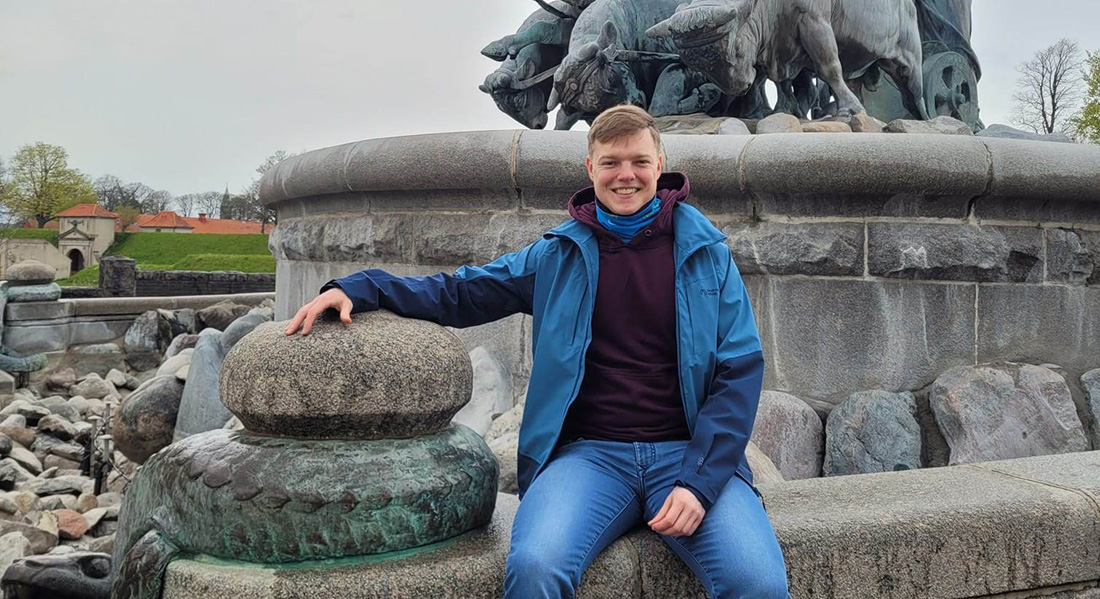
Student: Lukas Mikelionis, MSc CS at UCPH.
Main supervisor: Daniel Hershcovich, Tenure-Track Assistant Professor at CS, UCPH.
Research article: Structured Argument Mining in Persuasive Online Articles on Sustainable diets
Project period: November 21, 2022 to January 27, 2023.
Description: The project will employ Natural Language Processing (NLP) methods to analyze texts on plant-based diets, aiming to discover reasons for or against transitioning to it. Reason identification can be formulated as a discourse parsing problem since reason may be interpreted as a relation between the components of a discourse. We will use end-to-end argument mining (AM), automatic identification and extraction of structured arguments from textual documents, considering Claim and Premise as components in an argument as well as Support and Attack as relations between the components.
Data: Data from diverse sources will be used for high coverage, namely both social media (short, personal and noisy) and opinion pieces (long, structured and professionally written):
- A crowdsourced dataset of 597 annotated tweets was created in a previous project supervised by the main supervisor. It will be reused, additionally introducing structuring between the components of the discourse.
- Argumentative articles on the topic, collected from news/discussion websites on the Internet.
Data will be labelled so that NLP models can be trained and tested on it: coding/highlighting the arguments in the texts, categorizing them and drawing relationships between them.
Cross-disciplinary project: The project is naturally cross-disciplinary, and a political science student will be able to join the project to investigate what types of arguments are made on the targeted topic in a large-scale analysis of multiple media types.
Collaboration with external partners: The Danish think-tank Concito, represented by Michael Minter, will help collect data by providing guidance on finding relevant articles.
Sharing the results: After completing the project, the findings will be shared in a written report and a meeting with Concito.
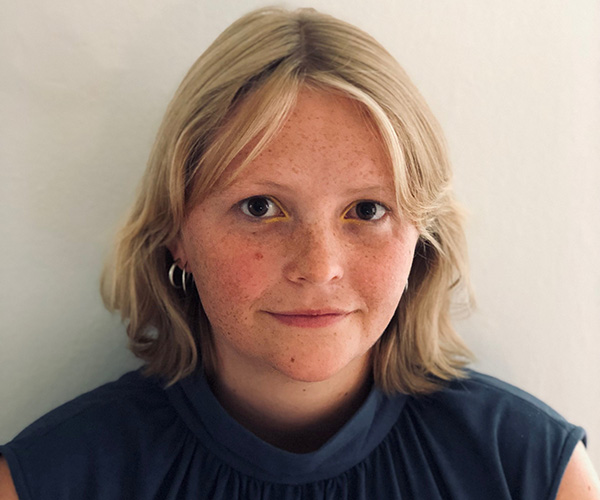
Student: Ulrikka Skovdal, MSc Political Science, UCPH
Read the full research article here.
This project investigates fathers’ masculine identity formation in relation to food, as it is consumed, cooked, and experienced both individually and in family relations.
In combination with the disciplines of both social science and humanity, Ulrikka delve into questions and narratives surrounding masculine identity formation as it relates to food practices and family roles. By inviting fathers and their children to participate in two separate plant-based cooking seminars hosted by Fars Køkkenskole, she research food’s potential for altering classic gender roles.
During the project period from February to June 2023, Ulrikka work with Fars Køkkenskole to host two sessions of green cooking seminars in which 10-12 fathers and their children participate. During the sessions, both fathers and children gain practical skills in plant-based cooking, a bag with recipes and vegetables to bring home, and experiences with child-parent collaboration in the kitchen.
The project will function as a pilot project for the launching of a new and plant-based version of Fars Køkkenskole: Fars Grønne Køkkenskole. Fars Grønne Køkkenskole is an important step towards a plant based future since we know that men (in comparison to women) eat more meat and are less inclined to change their food habits.
The aim of the project is therefore to consider the altering potential of the change in both food practices and family patterns. Ulrikka will do this through a new-materialist analysis of the assemblage consisting of plant-based food, father-children’s bonds, and kitchen seminars. Can assemblages such as these change men’s self identity and thoughts about “masculine” eating practices and their role as parents? Ulrikka will further investigate the relationship that affects play here and discuss the potentials and limits of considering affect as a subsystem of identity formation that alters some of the discursive gender role practices.
During and after the two cooking sessions, Ulrikka will conduct interviews with both fathers and children. These interviews will together with pictures of the food, and interviews with the people behind Fars Køkkenskole function as data for the analysis. The results of the analysis will be published as an article on KU’s Living Lab webpage and disseminated on a (semi) public event.
The official supervisor of my project is Lars Tønder from the Department of Political Science and she also receive supervision from Sophie Wennerscheid from the Department of Nordic Studies and Linguistics (currently situated at CApE).

Student: Jonathan S. Musso, Machine Learning and Datascience, DIKU
Funding by: UPCH Green Solutions Center Supervised by Daniel Hershcovich and Morten A. Rasmussen
Project description:
18% of Danes consider themselves predominantly or entirely vegetarian. This is a 50% increase from 2018, and 59% of Danes reportedly wish to eat less meat. However, in Danish recipe collections such as Nemlig.com only 10% of recipes are vegetarian, and out of the 20 most popular recipes, only 2 are vegetarian. The problem clearly is not lack of motivation for eating more vegetarian food, but rather a problem with the familiarity with plant-based food and their cooking methods.
Aim of the project
The aim of this project is to construct a web application that, if given a textual cooking recipe containing non-vegan ingredients and a list of instructions, will adapt it to a vegan recipe while still preserving the flavor, cultural style, and aesthetic of the dish. The project will end up in a dissemination report. The impact of this project will let users gain more familiarity with plant-based ingredients/methods, assisting in transition to a more plant-based food consumption pattern.
Methodology
Large Language Models (LLMs) such as GPT-3, trained on billions of words will be prompted to modify recipes such that they fulfill vegan restrictions, e.g., ingredients being plant-based. GPT-3 has shown impressive abilities in English, but in a Danish setting where the amount of needed data is lacking, multilingual LLMs such as BLOOM may perform better. Different prompt setups will be tested and compared on a metric to be established during the project. Furthermore, if their code/data gets published, a second approach will be adapted based on, who proposes a model architecture that successfully adapts recipes to satisfy certain dietary constraints, including vegetarianism.
The full evaluation protocol will be developed during the project, but the generated recipes from both models will be evaluated against each other with the use of online crowdsourcing services, and evaluations will be based on the criteria: Coherence and fluency of the produced text, if the recipe complies with the vegetarian constraint and overall quality of the dish.
Compass Group will suggest recipes as input, to be adapted for their canteens. They will also participate in evaluation by cooking some of the recipes and testing them.
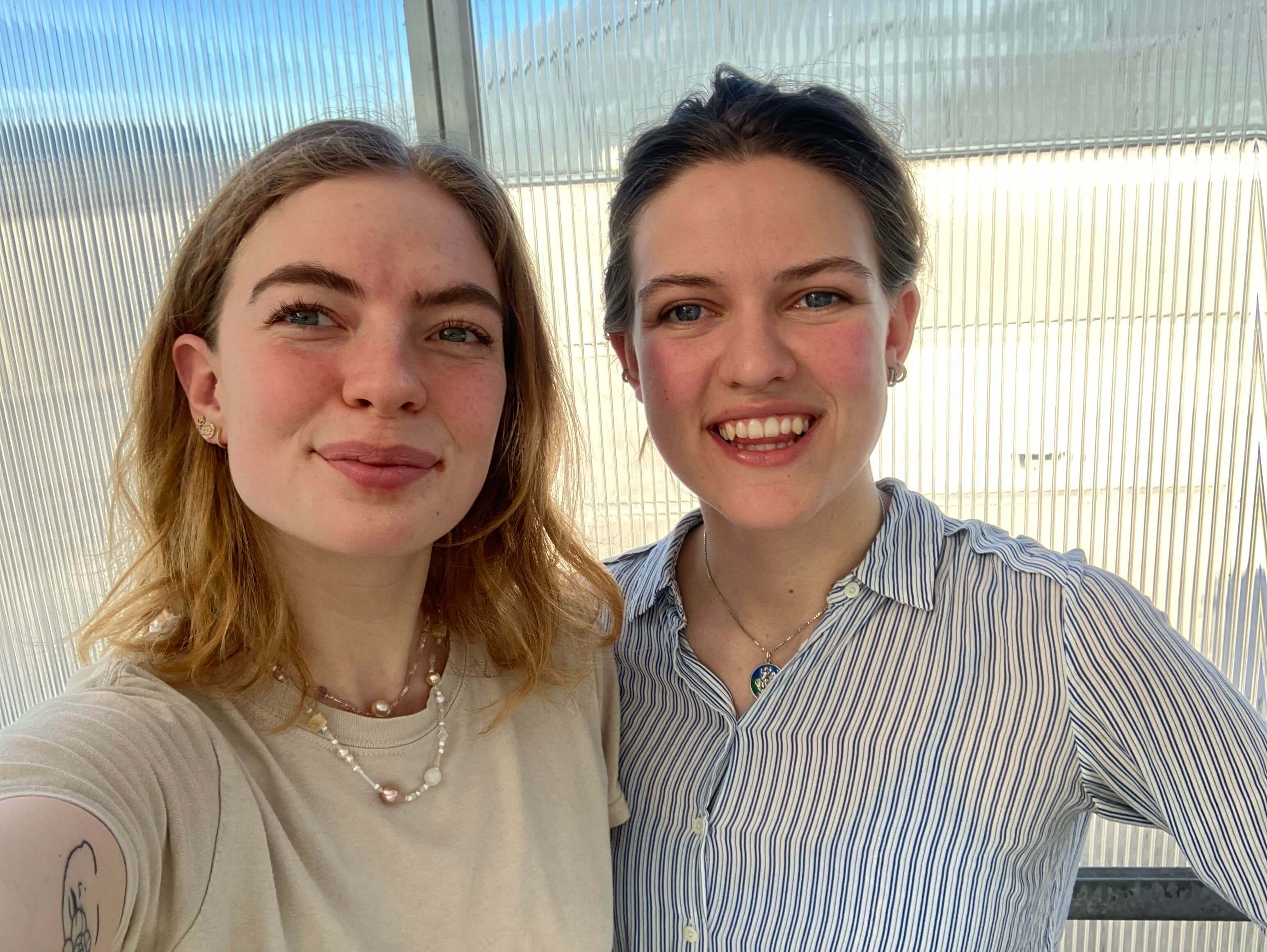
Students: Alberte Knudsen-Nielsen (Left) and Anne-Sophie Tiedemann Robinson (Right).
Main supervisor: Max Herzog
Research article: Bakteriers effekt på risplanters salttolerance
Our project aims to increase rice (Oryza sativa) salinity tolerance using probiotic bacteria. Rice is one of the most
However, rice is a
Our project aims to identify the function of probiotic bacteria known to

Student: Alice Dulaj, MSc in Agriculture (Plant Science) at UCPH.
Main supervisor: Iben Lykke Petersen, Associate Professor at the Department of Food Science, UCPH.
Project period: April 24th, 2023, to June 19th, 2023.
Read the full research article here.
Description: This project focuses on the optimization of plant-based milk in order to produce a higher quality of plant-based dairy products. Specifically, Fava Beans are the main focus of this study on different levels; it’s important to work on the raw material by having different types of pre-treated and optimized beans to use as raw material.
Moreover, several treatments are underway to improve quality issues with the milk as a first product coming from the raw material before looking at more elaborated plant-based dairy products. In particular, some of the main success criteria that are considered to choose the best pre-treatment possible are: protein content, solubility and emulsion stability.
At first, commercial Fava Beans were utilized with different pre-treatments and the milk was then analyzed in order to check the success criteria previously mentioned; once the best pre-treatment is identified, the test is going to be repeated to the optimized Fava Beans.
In order to achieve significant results, the materials and methods utilized during this project are the following:
- Commercial and optimized Fava Beans.
- Several pre-treatments when obtaining the different milks e.g. alkaline, neutral and acid soaking at different temperatures.
- SDS-PAGE protocol to compare the protein content with established commercial soy alternatives.
- Basic solubility tests to compare the effect that each pre-treatment has on the final product.
- Macros and particle size analysis using the UCPH facilities.
By the end of the project, we expect to have a better knowledge of which of the different pre-treatments, both for the raw material and the milk itself, gives out the best product to be able to proceed towards the implementation of new and elaborated high-quality plant-based dairy products.
The experiments are conducted at the main headquarters office of the company, at the Bio-Innovation Institute and at UCPH for specifically targeted analyses.
Cross-disciplinary project: This project involves PLEN at UCPH where I study Agriculture (with a specialization in plant science), the Department of Food Science where my supervisor is actively involved, and the external company, FAERM Aps.
Results: The findings from the project will then be presented at a Plant2Food event in May; moreover, the project will also be written as a report for UCPH and as a public article.
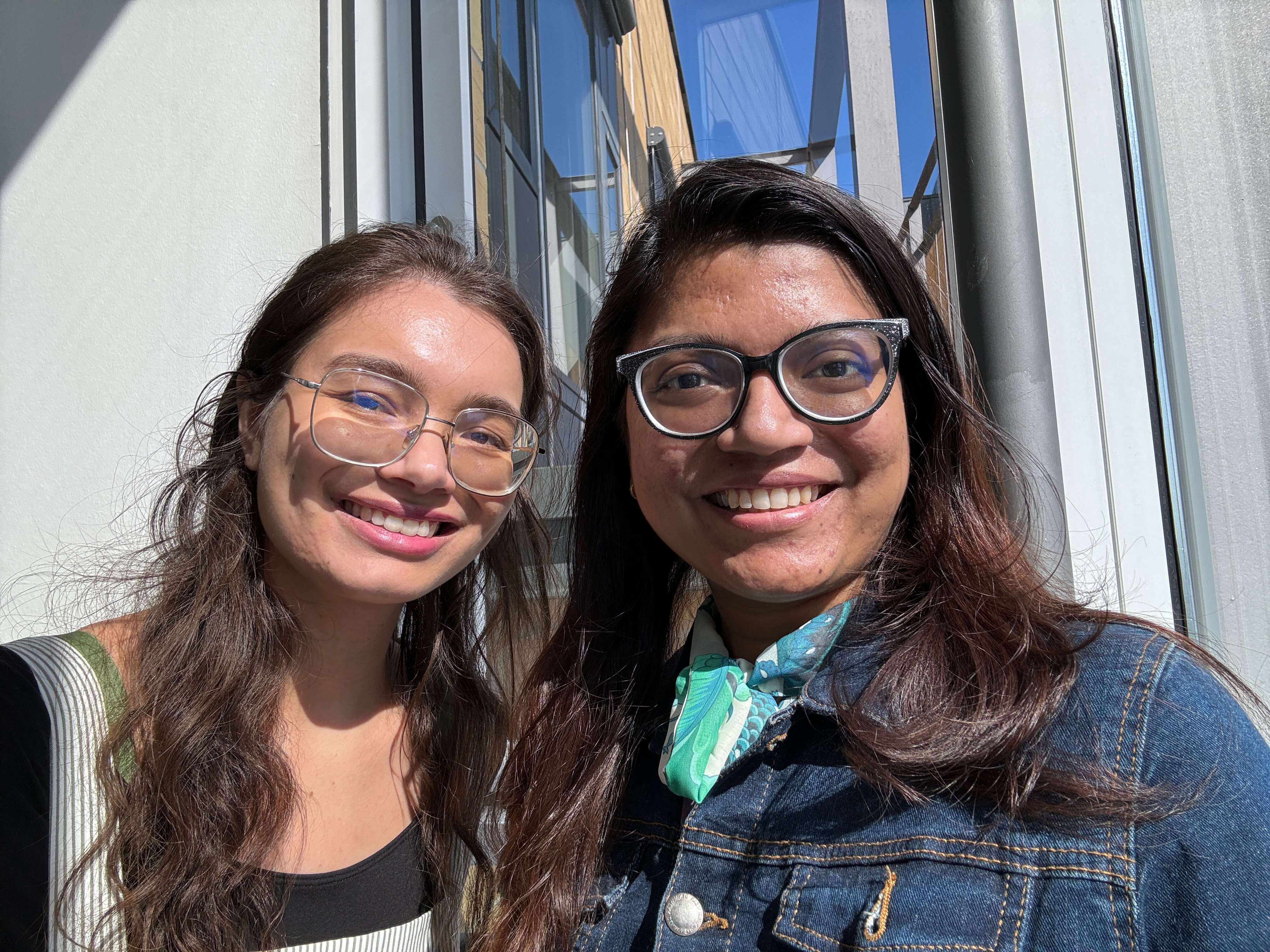
Student: Sumya Siddiqa (MSc Food Innovation and Health, UCPH)
Main supervisor: Helene Christine Reinbach (Ass. Prof. at the Department of Food Science, UCPH)
Project period: 31.01.2024 - 30.05.2024
External partner: BiomassProtein™
Read the full research article here.
Description: To enhance ingredient sourcing diversity and address the increasing demand for plant-based components, a protein concentrate is being derived from clover grass. This innovative ingredient exhibits notable functional attributes such as foaming and solubility and an amino acid profile like milk, egg and meat proteins. The consumer's willingness to accept the protein extract from clover grass as an additional source of high-quality plant protein is unknown.
A focus group discussion will be arranged in order to understand consumer’s perception, attitudes and opinions about the novel food. Participants for the discussion will be the adult Danish consumers. The primary focus will be the consumer needs and the involved in the acceptance or rejection of a novel product. The aim of the discussion will be to find out the consumer's perception about this novel food and to find out drivers and barriers for consuming/buying products with these novel food ingredients. The focus group discussion will also help to find out ideas of potential desirable food products.
The qualitative data collected from focus group discussion and literature research will be used to develop a quantitative survey. This exploratory sequential mixed method design will try to achieve a deep understanding of product perception and the consumer needs. A cross-cultural study including people from Austria and Denmark will be conducted in order to gain an understanding of these different population groups and knowledge about the perception consumers on the novel food product. This will also contribute to the understanding of the cultural differences and similarities of consumers of both countries.
Cross-disciplinary project: This project works within the cross-disiplinary field of product development, innovation, social science, sensory and consumer science.
Meet a student
Living Lab Manager
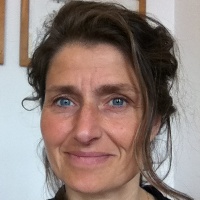 Mette Frimodt-Møller is Living Lab Manager, and you can contact her here.
Mette Frimodt-Møller is Living Lab Manager, and you can contact her here.
